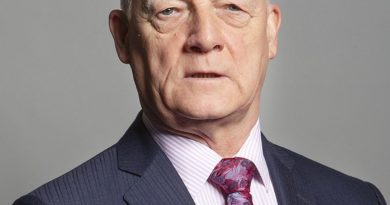Tessa Jowell – 2009 Speech to Labour Party Conference
Below is the text of the speech made by Tessa Jowell, the then Minister for the Olympics, to the 2009 Labour Party conference on 28th September 2009.
Conference, five years ago, I came to tell you about the progress of our bid to host the 2012 Olympic Games.
I told you then that we were going all out to win, that big prizes are never won by timidity and playing safe.
Britain went all out to win, and we won the big prize. To host the Olympics in London 2012.
In just over 1,000 days, the next big prize is up for grabs.
The eyes of four billion people will turn to the Olympic Stadium in East London for the opening ceremony:
A chance to show that Britain delivers.
A chance to show the extent of our ambition.
A chance to showcase Britain to the world.
Let no-one be under any illusion, hosting the Olympics is a huge challenge:
The largest peacetime logistical operation in our history,
26 world championships in 60 days.
We’re a little bit ahead of time and on budget.
With just under 3 years to go and over 40% of the build complete, there is no longer any doubt that we will deliver the Olympic Games and Paralympic Games we promised.
But hosting the Games was always about much more than 60 days of world class sport.
When we decided to back the bid in 2003, we had two major ambitions:
To accelerate the regeneration of East London by 30 years in 5 years
And transform a generation of young people through sport, including through International Inspiration, in developing countries around the world.
We are making huge strides forward:
With Europe’s biggest regeneration project, and in partnership with outstanding local leadership, we’re transforming 4 of the 10 most deprived boroughs in the country.
We are creating a major international centre for the industries that will drive our economic recovery: sport, digital, tourism, retail and sustainable living.
We’re fulfilling our ambitions for young people, too.
Our groundbreaking school sports programme has allowed us to get 90% of children doing 2 hours a week of sport in school.
And now we are going further.
By 2012, we will achieve 5 hours each week for the under-16s, while the free swimming programme launched in April has already delivered 4.5 million more swimming sessions.
In tough economic times, we stretched our ambitions so that London 2012 delivers a shot in the arm to the UK economy, creating jobs and work for businesses right across the country.
By 2012, 30,000 people will have worked on the Olympic Park.
But these are not just London’s Games, they belong to the whole of Britain.
And all of Britain is playing its part:
Steel for the Olympic Stadium from Bolton;
The Basketball Arena, the largest temporary structure ever built, constructed by a firm from Glasgow;
And the steel for the Aquatics centre, the iconic building that will be the symbol of London 2012, supplied from Neath.
1,000 companies around the country – two-thirds of them small and medium-sized businesses – have won direct contracts to help build the Olympic Park and Village, with hundreds more further down the supply chain.
So when in three years time, the curtain goes up on opening ceremony for the Olympic Games, the greatest show on earth, the world will witness a Britain that succeeded in its ambitions:
– That delivered the Games we promised
– That brought regeneration to East London
– That transformed a generation of young people through sport.
For the athletes arriving from around the world, and the fans who come to cheer them on, the opportunity to discover a Britain that is open to the world, a Britain of creativity and talent, a Britain of diversity and tolerance.
For all of us at home, the opportunity to witness our Olympic heroes and heroines in action, clocking up the medals. Our goals: 4th in the Olympics medal table, and second in the Paralympics’.
I, though, have the privilege to see Olympic heroism all the time as I travel round the country.
I saw it when, along with the Prime Minister, I met young apprentices helping to construct the Olympic Park, working hard for companies which have the foresight to invest today in the workforce of tomorrow;
I saw it when I went to the ceremony for young people graduating from the Personal Best programme, who have succeeded in learning new skills so they can join the 70,000 volunteers we’ll need to host the Games;
And I saw it when I met young people at the Fight for Peace Academy in Newham and its sister organisation in Rio, a pioneering project which helps combat crime and gang violence through sport.
All of them, striving to succeed because they’re ambitious for their future. They can’t realise their ambitions alone: inspiration has to be provided, horizons lifted, and doors opened.
Their names may not hit the headlines in the summer of 2012.
They may not mount the podium to receive a medal, the adulation of a nation ring in their ears.
They may remain, in President Obama’s words, ‘obscure in their labour’.
But, as they realise their ambitions, so we realise ours.
An Olympics like no other: success measured not simply in bronze, silver and gold, but in the transformation of young lives.


